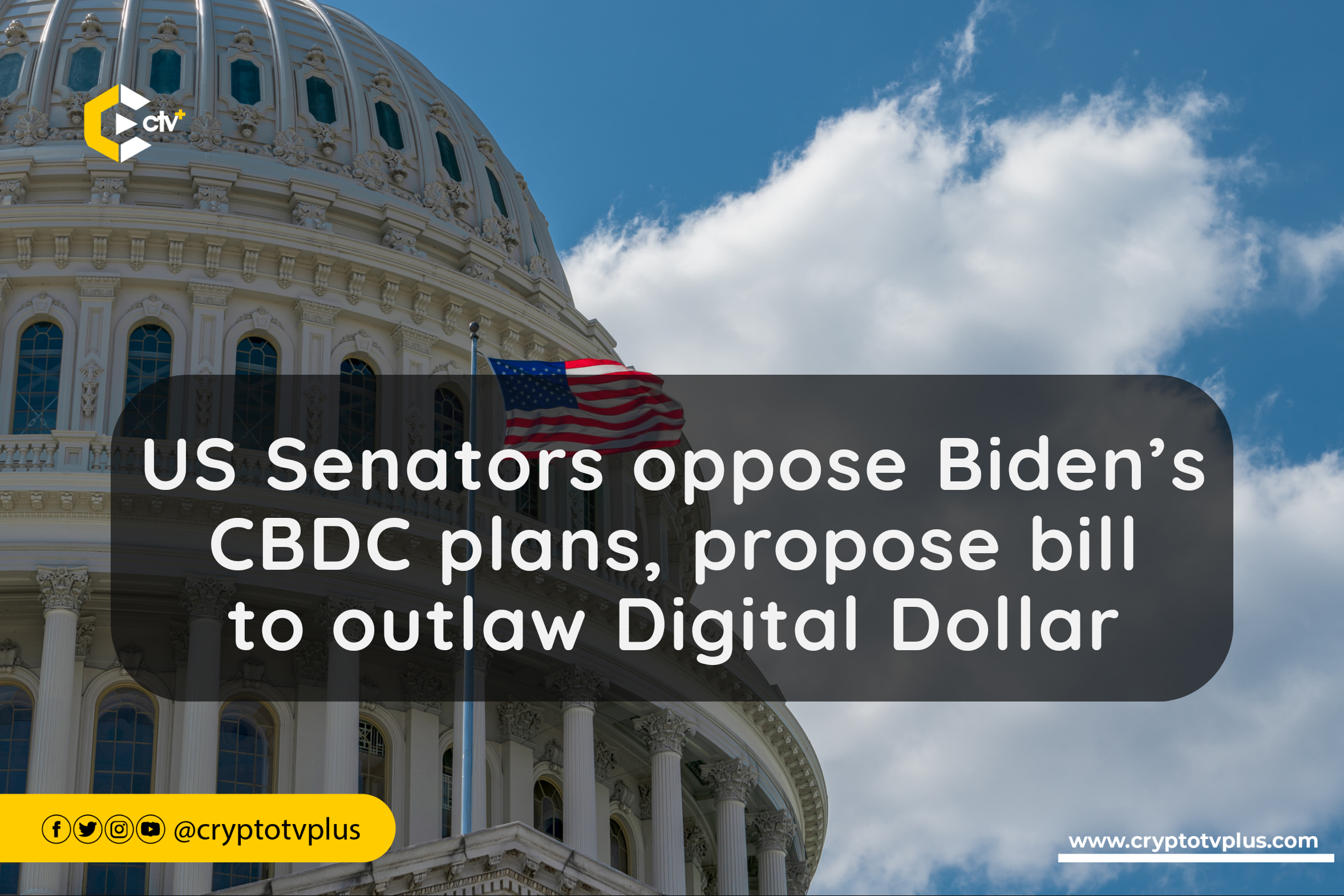News
US Senators oppose Biden’s CBDC plans, propose bill to outlaw Digital Dollar

Five United States senators, namely Senator Ted Cruz, Senators Bill Hagerty, Rick Scott, Ted Budd, and Mike Braun, have collaborated to express their opposition to the Biden administration’s intentions to introduce a “digital dollar.” To formalize their stance, these lawmakers jointly submitted legislation on February 26, titled the CBDC Anti-Surveillance State Act.
A digital dollar is a CBDC designed as a legal tender. Central Bank Digital Currencies (CBDCs) are digital versions of a country’s official currency issued by its central bank. They function as modern money, serving as a medium of exchange, unit of account, and store of value.
There are two main types: retail CBDCs for consumers and businesses, facilitating daily transactions, and wholesale CBDCs for financial institutions, primarily used for settlements. Unlike cryptocurrencies, CBDCs are government-backed, regulated by central banks, and not dependent on blockchain technology, though some proposals consider incorporating elements of distributed ledgers into their designs.
The primary objective of this legislation by the Senators is to prevent the implementation of central bank digital currencies (CBDCs) in the United States. By introducing the CBDC Anti-Surveillance State Act, the senators aim to establish legal barriers that would block the issuance of CBDCs.
They specifically highlight worries that a digital dollar could be programmed in a way that allows for extensive surveillance of citizens, potentially infringing on individual privacy and freedom. Senator Cruz called on Congress to clarify that the Federal Reserve lacks the authority to proceed with a CBDC.
Ban on future creation of CBDCs
Additionally, the legislation explicitly opposes the Federal Reserve’s ability “to offer certain products or services directly to an individual, to prohibit the use of central bank digital currency for monetary policy, and for other purposes.”
Senators Scott and Budd are concerned about protecting the financial privacy of U.S. citizens, fearing that a Central Bank Digital Currency (CBDC) could lead to increased government surveillance and control over people’s spending habits. Senator Budd highlighted that a CBDC might allow the government to monitor and influence the spending behavior of all Americans. Both senators support Senator Cruz’s effort to confront and stop the establishment of a CBDC.
Senator Cruz described CBDC as “government-controlled programmable money,” expressing worries about its potential to gather personal details and allow tracking and freezing of funds. If the legislation they proposed becomes law, it would not only ban CBDCs but also mandate Congress’s explicit authorization for any future CBDC issuance.
Organizations such as Heritage Action for America (HAFA), the Blockchain Association, the American Bankers Association (ABA), the Independent Community Bankers Association (ICBA), and the Club for Growth (CFG) have also thrown their support for the move by the US leaders.
Trump and CBDCs
This is coming at a time when former President Donald Trump and the presidential candidate under the Republican Party have expressed strong opposition to Central Bank Digital Currencies (CBDCs), considering them a threat to personal freedom and a means for the government to exercise absolute control over individuals’ money.
Trump has reiterated his stance against CBDCs in various public appearances, sharing his concerns about the potential implications of these CBDCs on financial autonomy and government oversight.
Trump’s criticism of CBDCs stems from his belief that such currencies could enable the federal government to seize individuals’ money without their knowledge, thereby infringing on personal liberties.
He has vowed to prevent the creation of a US central bank digital currency if re-elected, highlighting his commitment to safeguarding Americans from what he perceives as government tyranny associated with CBDCs.
Governor Ron DeSantis has also been vocal about his opposition to Central Bank Digital Currencies (CBDCs). He has taken steps to protect Floridians from what he perceives as threats posed by a federally controlled CBDC, emphasizing concerns about surveillance and control over individuals’ financial transactions.
DeSantis has signed legislation in Florida to explicitly prohibit the use of federal CBDCs as money within the state, aiming to safeguard economic freedom and privacy from potential government overreach. Additionally, he has vowed to ban CBDCs in the United States if elected president.
He views CBDCs as a tool that could compromise personal economic freedom, privacy rights, and security, aligning his position with a broader narrative of protecting individual rights and freedoms against perceived government intrusion.
As of November 2023, 130 countries worldwide were either piloting, researching, developing, or otherwise exploring a CBDC initiative for their economies.
Read also; KyberSwap hacker moves $2.5M to Ethereum; BitForex halts withdrawals amid suspected hack

























Pingback: Dencun network upgrade activated on testnets, Mainnet in March | CryptoTvplus - The Leading Blockchain Media Firm
Pingback: House Panel pushes bill against SEC's crypto custody guidance | CryptoTvplus - The Leading Blockchain Media Firm